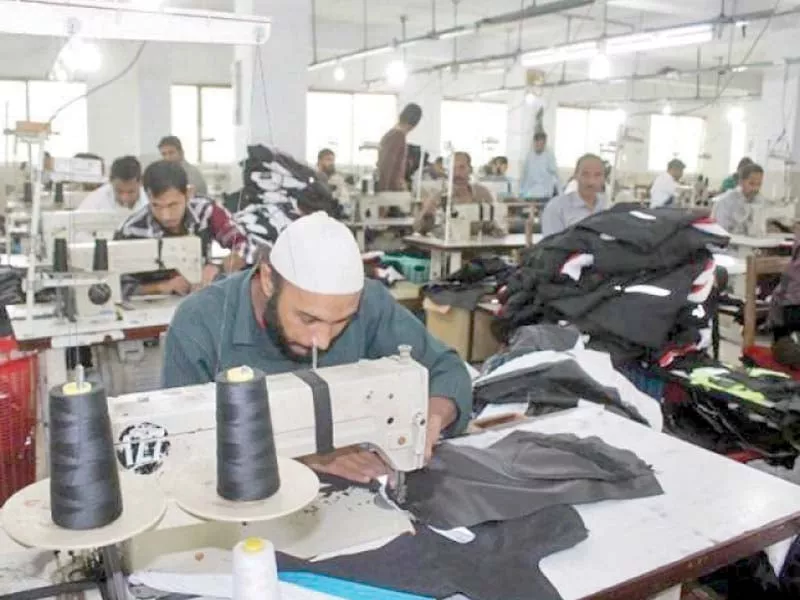Experts call for facilitation of SMEs
Highlight need for policy measure to help recover from worst impact of pandemic
ISLAMABAD:Small and medium enterprises (SMEs) need an enabling policy measure to recover from the worst impact of the Covid-19 pandemic. Provincial governments also need to evaluate the situation to respond with urgent facilitation to save such businesses.
These remarks were made by experts and analysts from the public and private sectors during an online consultative dialogue on “Better business regulation for SME sector in Punjab province”, organised by the Sustainable Development Policy Institute (SDPI) on Wednesday.
Speaking on the occasion, Punjab Board of Investment and Trade Director (Projects and Policy) Sohail Qadri informed dialogue participants that his institution was aiming to create a platform for providing capacity building services to the SMEs and to help them in exploring global markets.
He suggested that institutions such as the Small and Medium Enterprises Development Authority (Smeda) and Punjab Small Industries Corporation (PSIC) needed to collaborate and help SMEs mitigate Covid-19 related difficulties.
“Needs of the SMEs should also be prioritised in relevant policies and efforts, so that more clusters of smaller firms could be created,” he added.
SDPI Joint Executive Director Vaqar Ahmed was of the opinion that the Securities and Exchange Commission of Pakistan (SECP) was required to ease laws for the SMEs and start-ups across the country.
He pointed out that current laws were preventing idle liquidity in the economy from moving to innovative firms from real estate.
“Likewise, Pakistani diaspora, willing to invest in Pakistan, continues to complain about the lack of a credible venture capital and crowdsourcing framework. Therefore, the SECP needs to evaluate the existing facilitation and regulatory framework.”
He added that there should also be an evaluation to assess if the anticipated gains from SECP’s start-up portal, facilitation desk and regulatory Sandbox initiatives were achieved.
“A deeper consultation with the private sector and think tanks on amendments to the private equity and venture capital regulatory framework is required,” Ahmed stressed.
He said the provincial government also needed to study the rise in business costs related to compliance with Covid-19 related standard operating procedures (SOPs).
Also contributing to the discussion, Women Chamber of Commerce and Industry (Lahore Division) Founding President Dr Shehla Javed Akram was of view that there was a lack of interest on the part of government to engage with businesses and understand their issues.
She added that women-led businesses found it even more difficult to access the refinance facility and collateral-free loan facility announced by the State Bank of Pakistan. Likewise, commercial banks also do not understand the problems faced by the women-led SMEs.
“The Punjab government needs to learn from peer economies and how they supported the SMEs, particularly women-led businesses. Central banks in other countries have been more innovative in launching support schemes for women-led enterprises.”
USAID Economic Growth Specialist Kamran Niazi underlined the need for highlighting which SMEs needed more support in these difficult times.
“Provincial governments need to study how to integrate rural SMEs with major markets in mainstream cities and urban centres in a better manner,” he said.
Niazi stressed that the e-commerce policy and interventions should be customised to bring consumers from rural areas online.
He said donor organisations, which were trying to help Pakistan, faced difficulties as they could not better plan their support in the absence of timely and credible data on the SMEs.
Ammara Farooq Malik, a social entrepreneur, lamented that no assessment had been made yet on how Covid-19 had impacted social enterprises across the country.
In this sector, she said, several women worked from home or online, but they had not been supported through any intervention by the Punjab government. The country is in dire need of a legal framework for social enterprises.
Published in The Express Tribune, July 30th, 2020.
Like Business on Facebook, follow @TribuneBiz on Twitter to stay informed and join in the conversation.


COMMENTS
Comments are moderated and generally will be posted if they are on-topic and not abusive.
For more information, please see our Comments FAQ